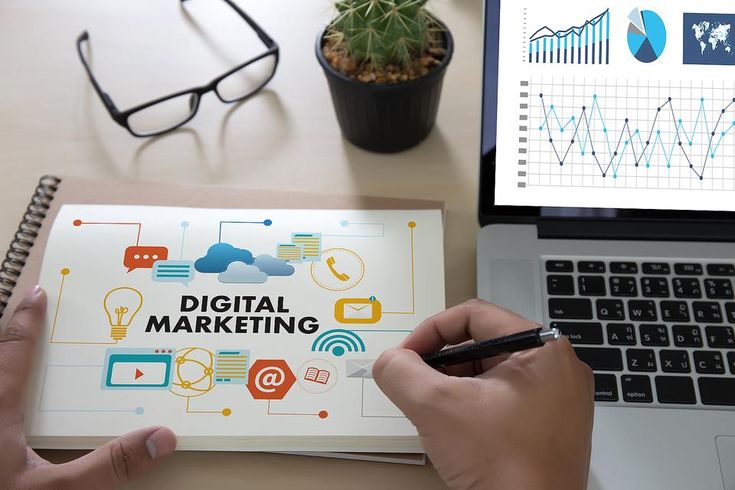In today’s fast-paced, technology-driven world, digital marketing has become a cornerstone of business success. Whether you’re a small startup or a large corporation, digital marketing offers the tools and strategies to reach a global audience, increase brand awareness, and drive sales. But why exactly is digital marketing so important for businesses? Let’s dive into the key reasons why it has become indispensable for modern-day businesses.
1. Wider Reach and Global Audience
One of the most significant advantages of digital marketing is the ability to reach a global audience. Traditional marketing methods, such as print ads or TV commercials, are often limited by geography, budget, and resources. Digital marketing, on the other hand, breaks down these barriers. With tools like social media, search engines, email campaigns, and content marketing, businesses can engage with customers across the globe in real-time, increasing their potential reach and customer base.
2. Cost-Effective Marketing
Compared to traditional marketing methods, digital marketing is far more cost-effective. Running ads on social media platforms, creating content for a website, or sending out email newsletters are relatively low-cost options that yield significant returns. For small businesses or startups with limited budgets, digital marketing provides an affordable way to compete with larger, well-established companies.
3. Targeted Marketing and Personalization
Digital marketing allows businesses to tailor their marketing strategies to specific customer segments. By using tools like Google Ads, Facebook Ads, or email marketing, businesses can target individuals based on their demographics, interests, and online behavior. This targeted approach ensures that marketing efforts are directed at the right audience, which increases the chances of conversions and ROI.
Personalization is another key benefit. With digital marketing, you can create personalized experiences for customers, such as sending them product recommendations based on past purchases or offering discounts tailored to their preferences. This level of personalization helps build stronger customer relationships and loyalty.
4. Measurable Results and Analytics
One of the greatest benefits of digital marketing is the ability to measure and track your results. Through tools like Google Analytics, social media insights, and email campaign reports, businesses can easily monitor the performance of their marketing efforts in real-time. You can track metrics such as website traffic, conversion rates, bounce rates, and customer engagement. This data allows businesses to refine their strategies, optimize campaigns, and make data-driven decisions for future marketing efforts.
5. Improved Customer Engagement and Interaction
Digital marketing opens up multiple channels for direct interaction with customers. Social media platforms, live chats, and email provide businesses with real-time communication opportunities, enabling them to address customer queries, resolve issues, and build stronger relationships. Engaging with customers in a meaningful way helps create a sense of community and trust, which can lead to higher customer satisfaction and retention.
6. Brand Awareness and Reputation Building
Digital marketing plays a crucial role in building and enhancing a brand’s reputation. By maintaining an active online presence through social media, content marketing, and SEO, businesses can increase their visibility and establish themselves as industry leaders. Positive reviews, testimonials, and engaging content also contribute to a strong brand reputation. With digital marketing, businesses can actively shape how they are perceived by their audience, which can ultimately influence buying decisions.
7. Competitive Advantage
In today’s competitive marketplace, digital marketing provides businesses with the tools to stay ahead of their competitors. By using SEO to rank higher in search engine results, leveraging social media to engage with customers, and running targeted ads, businesses can gain a competitive edge. The ability to adapt quickly to trends and consumer preferences is also crucial in maintaining relevance and staying ahead in the market.
8. Increased Sales and Conversions
Ultimately, the goal of digital marketing is to drive sales and conversions. By using various strategies such as email marketing, content marketing, and pay-per-click advertising, businesses can guide potential customers through the sales funnel and convert them into paying customers. With digital marketing, businesses can implement strategies that nurture leads, retarget previous website visitors, and optimize the customer journey, all of which contribute to higher conversion rates and increased revenue.
Conclusion
Digital marketing is no longer a luxury; it’s a necessity for businesses of all sizes. Its ability to provide a global reach, cost-effective solutions, personalized marketing, and measurable results makes it a powerful tool in today’s business world. Whether you’re looking to increase brand awareness, engage with customers, or drive sales, digital marketing provides the strategies and insights needed to succeed in a competitive market. Embracing digital marketing is essential for businesses that want to grow, adapt, and thrive in the modern digital landscape.

